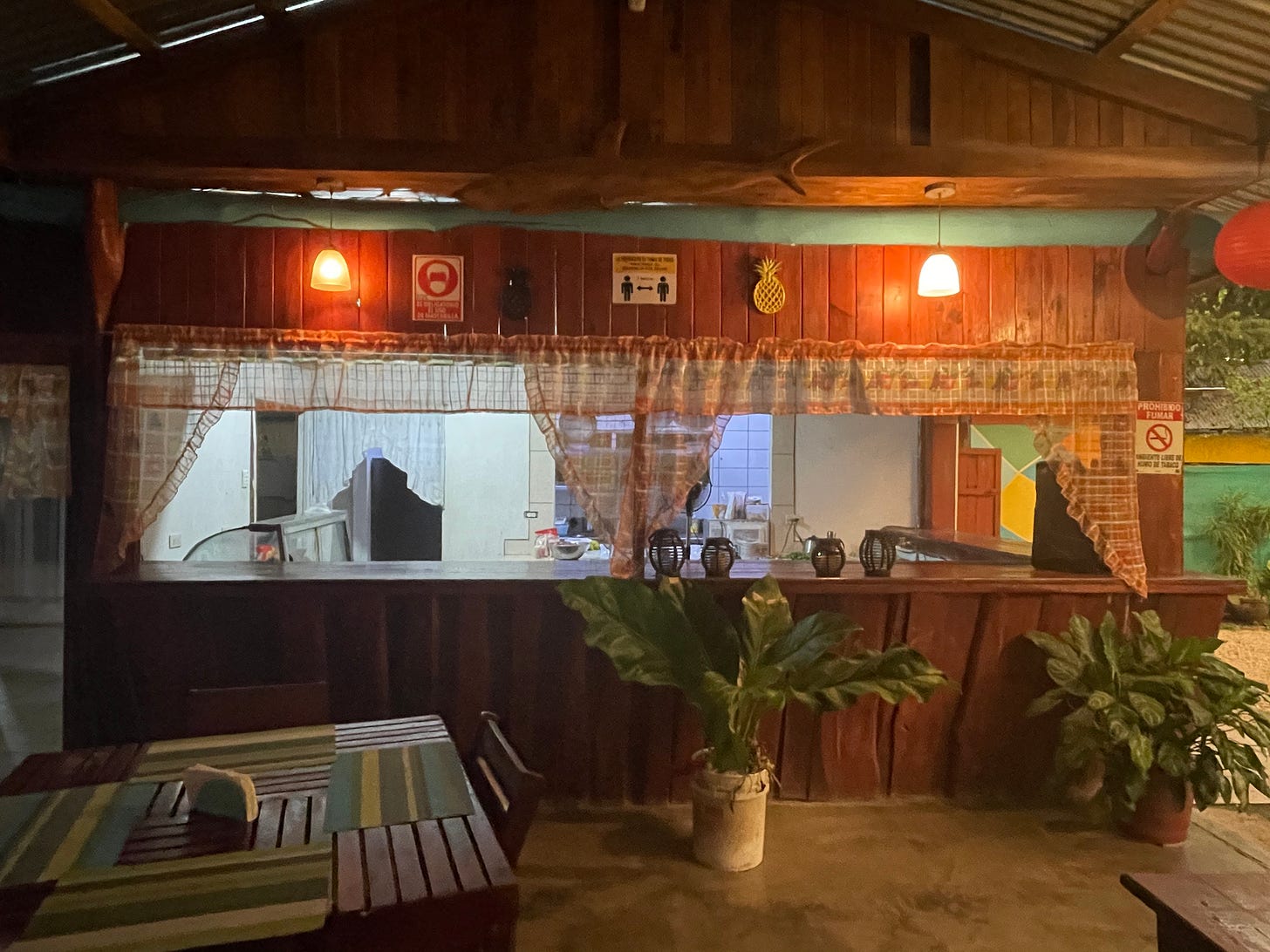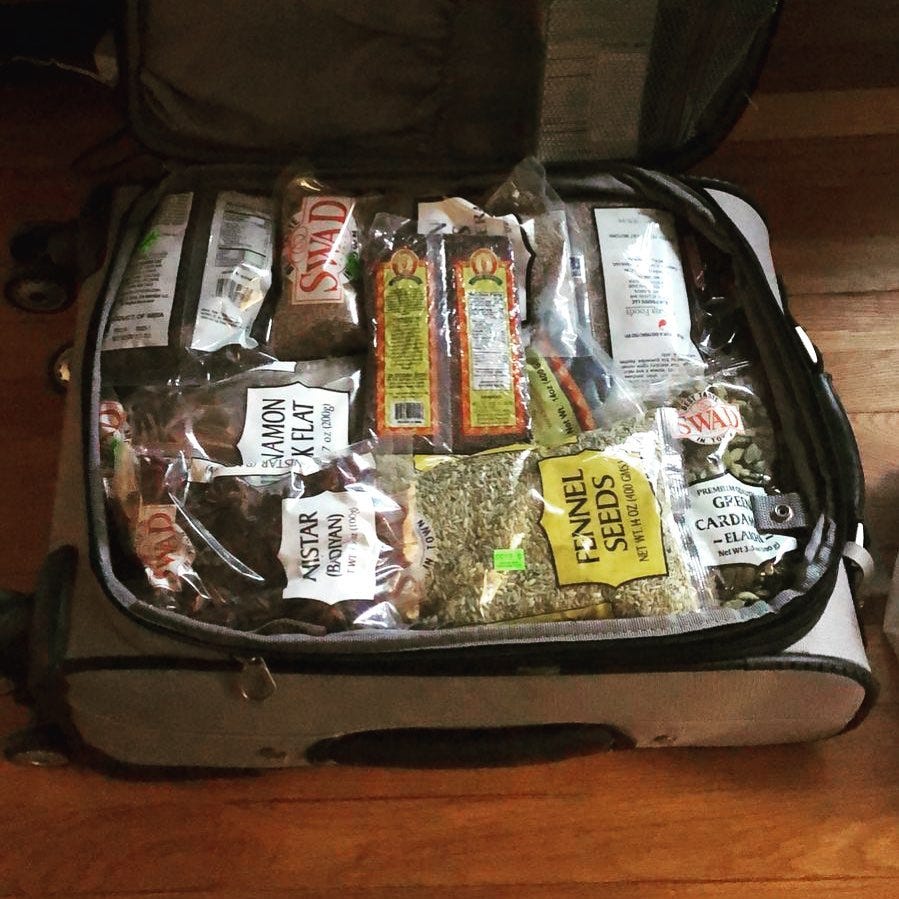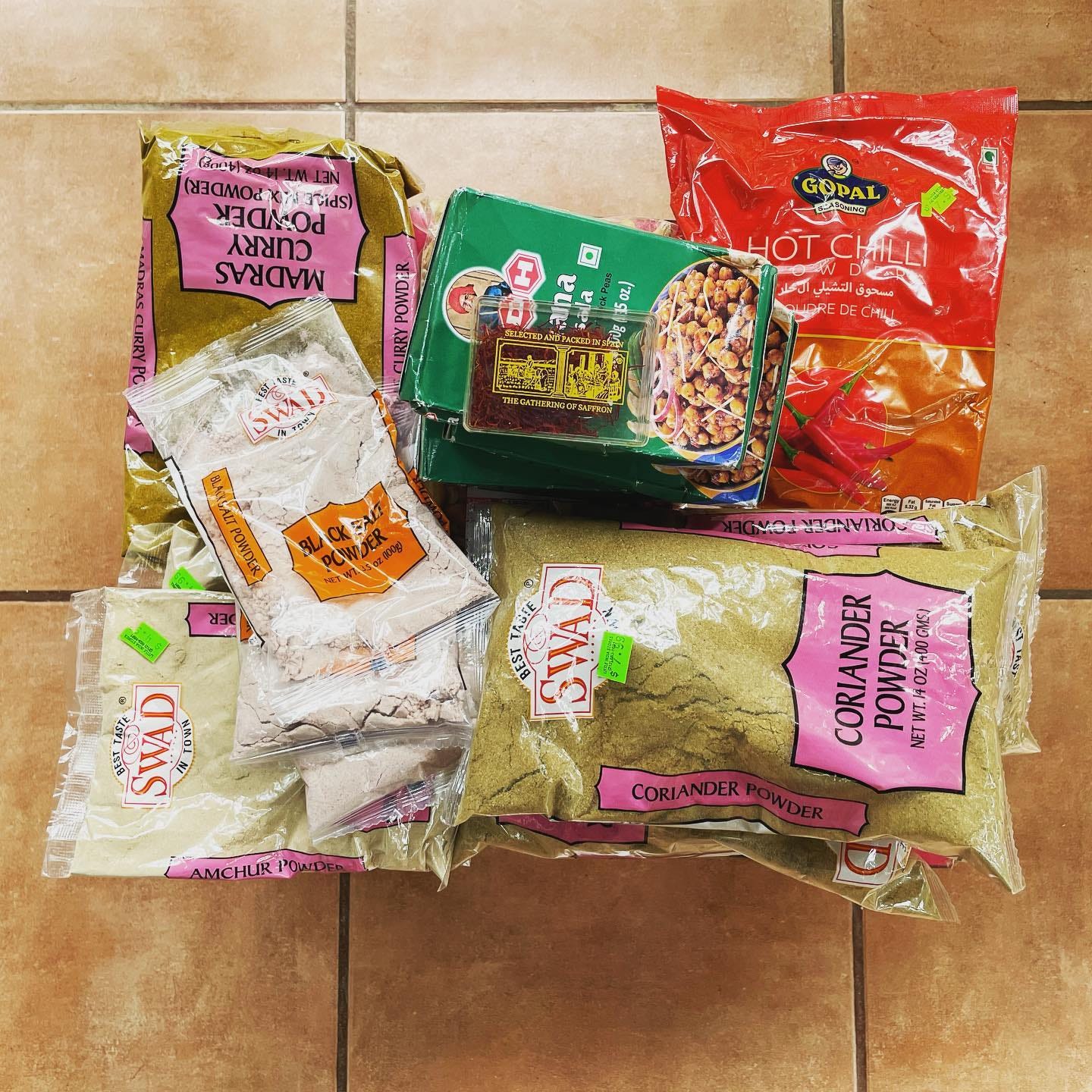Hi! I am Parul. My ancestors are from South Asia, I was born on Turtle Island in Tkaronto, and I currently live on the island of Bali in Indonesia. I use poetry, prose, poetic frames to unravel entanglements of our thoughts, feelings and experiences. Call it an evolving decolonization practice that is liberating the many intelligences our existence contains.☝🏽 I read you this newsletter, or you can read it yourself! 👇🏽
what doesn’t seem obvious upfront
is a journey full of risks
ripples through your life
in unknown patterns
intersecting with you at the most obscure
and most obvious moments
I started a pop-up Indian restaurant in a small beach town at the height of the pandemic with my friend Marlon because we so missed Indian food.
It was the longest I hadn’t seem my family. It was the longest I had gone without Indian food. It was the quietest, weirdest time in the world.
Riddled with uncertainty, there in the darkness lies possibility.
It was called Thanks Auntie.
Established June 2021 in Nosara, Costa Rica.
I/ Only Indian food can fill my belly… I am my dad
Living in small towns in Costa Rica, Indian food was far from abundant. Six months later, I could feel ancestral urges for Indian food and spices in a way that I have never experienced before. Probably the same feeling my parents have when they /need/ Indian food literally 2 days into a vacation. #IYKYK
When I was 11 (circa 1997) I went on a Euro-bus-trip with my family and my Bua’s family (Dad’s sister). My dad and Bua found an Indian restaurant in Paris that was literally closing and convinced the owner of their desi need for “good” food, food that filled their bellies and their hearts.
This desire for Indian food was at first one for my tastebuds, but it grew to be more than that…
It helped me heal my relationship to my culture and upbringing. Bringing forward sweet memories of my mom’s food and Ayurvedic wisdom that was common tongue in many Indian households. Like drinking warm haldi dood (translation: turmeric milk/ appropriated name: golden milk) before bed, especially when you’re not feeling well.
Another memory. Park picnics. Where a causal 40 Indian people gathered (essentially 5-6 families) and the aunties would bring a dish each creating a delicious, huge buffet of food. Feeding all of us, with space for second and third servings, plus we always ended up sharing with other park patrons, who were super excited and grateful for it.
In so many ways this desire for Indian food helped heal some of internalized racism that I, and we as third culture people, naturally embodied due to the pressure too assimilate, whilst living in North America.
This was a bittersweet remembering. Because my mom’s food was thousands of kilometres away, and tbh I didn’t really know how to cook Indian food. Yet I missed it so so much.
Then two things happened:
A new found friendship with Marlon, the only other South Asian person I encountered living in Costa Rica, who also happens to be from Toronto. So much sharedness.
I found a pack of garam masala in a grocery store.
Critical ingredients for a surprising upcoming (ad)venture.
all you need is a little momentum
a nudge of outside encouragement, in any form
for an idea to turn into a seed
for that seed to sprout into a plant
an unknown fruit tree
II/ Spice for our life please!
Six weeks into my friendship with Marlon, I proposed that we cook Indian food for each other with a singular pack of very expensive garam masala. Naturally this leap frogged to let’s cook for our friends, to let’s cook for everybody*! Ridiculous proposal for 2 non-chef people digital nomads. Within 24 hours this little idea got real when (1) a friend’s friend (Sonia!) was coming from NYC to Costa Rica and offered to bring us spices and (2) we were invited to host weekly dinners at a very popular vegan supper club. So we took this sign from the universe and planted the seed. Marlon and I moved into together, and started a self-directed 4-week ancestral, culinary, artist residency. As we explored cooking healthy (vegan, paleo-ish) Indian food for our community and our hearts. And so began our exploration into Auntiehood and spice life. (*Everybody = for the people in the small surf town we live in called Nosara that has just over 1000 person population.)

There is so much that happened in our Thanks Auntie journey. Like good millennials, we documented this for the internet archive that is our lives.
our journey
in summary 30 days 4 dinners hosted 4 unique menus 4 locations 130+ people fed over sold all events cooked in commercial kitchens in jungle kitchens in our tiny little home kitchen at a hotel at a supper club at two different restaurants broke records broke hearts revived the spice in life #auntiepower #thanksauntie
III/ Auntiehood is an act of care.
We called our restaurant experience Thanks Auntie. Because aunties represent care in so many cultures, including parts of South Asia. In my experience growing up in Punjabi culture — auntie is any woman that is older than you / closer to your mom’s age. So aunties held the maternal space in a home and community, usually the embodiment of a generous and knowledgeable spirit. Auntie’s represent care. The universal currency of care is food. Food is medicine, according to Ayurveda. Care is soul filling. So it is totally normal for an auntie to try to feed you, and usually overfeed you! But auntie wants you to know you are cared for. Auntiehood is the linchpin of families and communities. (See picnic story in earlier section as an example!) It is care for the whole, like an ecosystem based approach: If I'm caring for my community, I can't neglect the plants or the animals. I can't neglect the children or the elderly. Auntie's hold it down. They loop in our ancestors and our future through food, remedies and rituals. So many of us have benefited from that unspoken care of women, who's work is mostly thankless and silent. Thanks Auntie was paying homage to all the care we received from the maternal figures in our lives. We wanted to embody that generous spirit to offer to our community and each other. It seemed that being away from home it wasn’t just food that was missed, but the maternal care that feels unconditional. In our journey a few things became clear. Auntiehood is a form of care from the belly to the heart. Auntiehood is not a gendered experience. Auntiehood is a movement. A movement of care. It seems we are stronger and more gentle than we let on. We need more care in our lives. More care for ourselves, for each other and for Mother Earth. Now more than ever. Thanks Auntie! 🙏
“Care is everything that is done to maintain, continue, and re-pair ‘the world’ so that all can live in it as well as possible. That world includes… all that we seek to interweave in a complex, life-sustaining web.” — quote by Joan Tronto in Matters of Care by María Puig de la Bellacasa
Much love 💙💛💚
Parul Auntie // @parulbee















Share this post